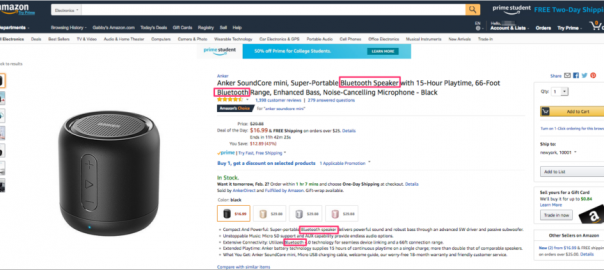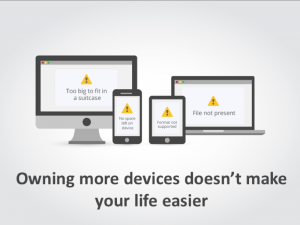— March 8, 2018
Consumers at a shopping mall get to know brands through storefronts. After handling inventory, seeing how a shop is designed, and talking to employees, buyers form an impression of the business and decide whether they want to make a purchase.
As an Amazon seller, your product listing is your storefront. Like a window display attracting shoppers, your listing title and image on a search results page get buyers to click. Buyers then get a full impression of your item at the product page with your detailed description, customer reviews, and additional images.
Listings provide all of the knowledge that a buyer needs to make a purchase, so they’re the key to making Amazon sales. As a seller, it’s paramount that you craft your product page in a way that’s going to attract buyers quickly and easily.
To help you get started, we’ll go over how to set up your first Amazon listing and identify the key elements of product pages that draw buyers in and drive purchases.
Let’s get started.
How to Set Up Your Amazon Listing
When you sell a product on Amazon, you have to create a new listing if you’re the first seller to offer that exact product in the marketplace. When multiple merchants are selling the same product, they share an Amazon listing.
To create a unique listing, log into your Seller Central Dashboard. Go up to the menu option that says “Inventory,” and when you mouse over it, a menu will pop out with an option that says “Add a Product.”
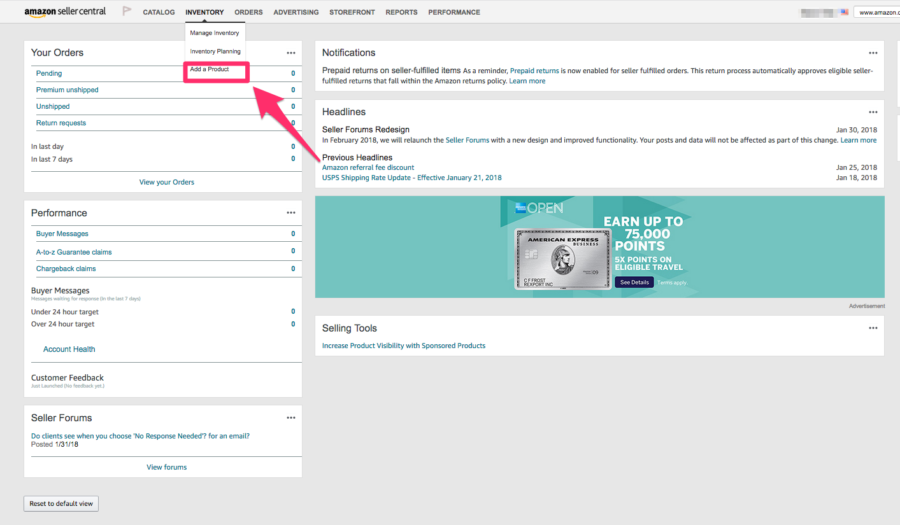
At the product creation page, you have a choice of either selecting an existing product or making your own. For a unique product, select “Create a new listing.”
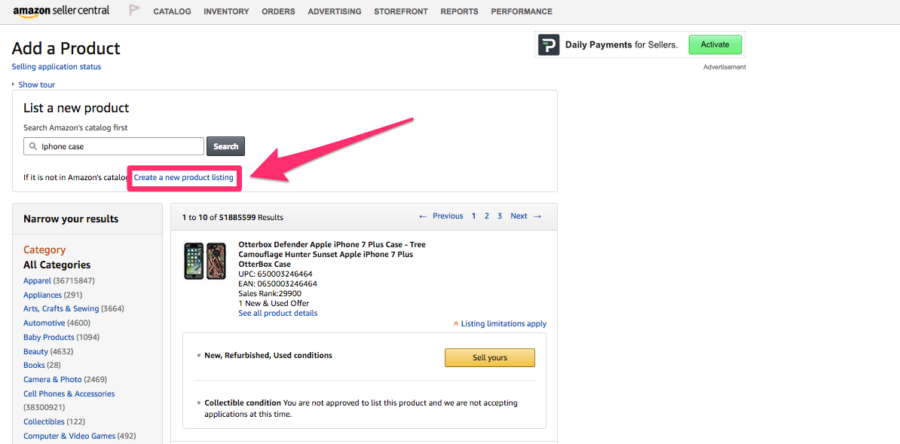
Choose your product categories and subcategories to classify your product.
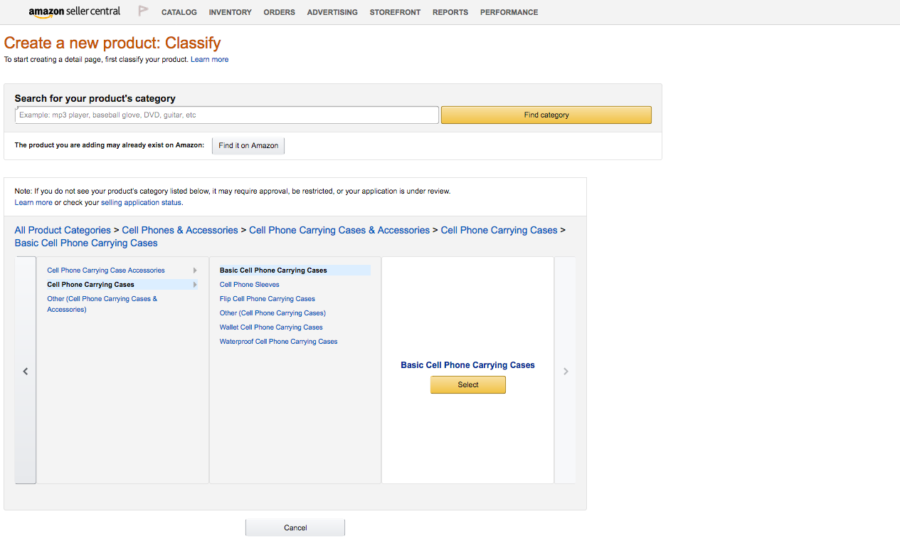
From there, you’ll be prompted to fill in your product listing information.
 [Source]
[Source]
This content— your product title, description images — is what makes or breaks your listing page. It has to be both informative and engaging so buyers trust your brand and understand why they should purchase your item.
Elements of a Great Product Listing
As an Amazon seller, crafting a product listing is a juggling act. You have to optimize your listings with keywords to place them high in search results. At the same time, you have to include captivating copy and images that drive buyers to purchase your products.
There are a few basic elements of great Amazon listings that drive sales. They have:
- SEO-driven keywords
- Detailed product descriptions
- Scannable formatting
- Engaging visuals
Focus on these areas, and your listing will be in top shape with all of the content it needs to drive sales.
Seo-Driven Keywords
Search engine optimization (SEO) is the key to driving buyers to your Amazon listing. It guides search engines to rank your listing high in search results so that your product is highly visible to buyers.
Amazon’s search engine and outside search engines interpret the keywords you place in your listing to determine whether your product is a relevant search result. The trick is to include keywords in your listing that your key buyers are frequently searching — that way your listing is ranked high where it matters.
Say, for example, you’re selling a speaker and want to rank for the highly searched keyword “Bluetooth,” a key feature of the product. You would include “Bluetooth” throughout your product listing so search engines tie your item to that term in search results.
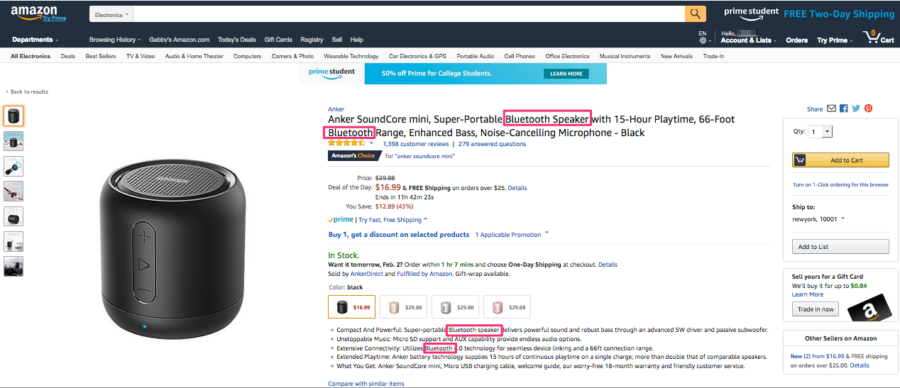
There are plenty of online resources for finding highly searched keywords. You can use our SEO guide to learn more about the best keyword tools out there.
Loading your listing with frequently searched keywords used to lead to higher rankings, but search engines today penalize the old practice of keyword stuffing. With improved technology, search engines can now detect when keywords are being placed in a non-helpful, out-of-context way.
To avoid lower rankings, we recommend moderately including keywords in relevant areas of your listing. Here are a few recommendations:
- Include target keywords in your product title. Avoid overloading your title with keywords, though— this will make your listing look like spam to buyers and search engines. Instead, stick to your most essential keyword phrases.
- Distribute your keywords consistently and evenly. We recommend including target keywords two to three times throughout your listing and spreading them out every 100 to 200 words.
- Use variations of your target keywords. If you are targeting “purple phone case,” for example, you’d also want to use phrases like “phone cases that are purple” or “purple-colored phone cases.”
Consistently include keywords in spots where they’re relevant, and you’ll boost your listing’s visibility and drive more buyers to your product.
Detailed Product Information
Your product description is like the salesman on the shop floor. It has to gain the buyer’s trust by explaining product information while also sparking shoppers’ curiosity and interest in the item.
First and foremost, your product description should be comprehensive and accurate. Making false promises about your product may win a sale initially. In the long-term, though, the buyer will most likely return the item, and your seller reputation can be harmed. A buyer can file an Amazon A-to-Z guarantee claim if you deliver a product that doesn’t match its description, which causes your seller ODR (order defect rate) to increase.
Beyond including basic product information, a great listing description also takes into account buyers’ motivations. Instead of just listing product features, highlight the benefits of your item that your key customers will care about the most.
For example, say you’re selling a mobile phone with Bluetooth 4.2. As a customer, this technical spec isn’t emotionally powerful— I’m much more invested in the function of Bluetooth, being able to connect my phone to other devices. To grab my interest, a description of the product might look something like this:
“The Bluetooth V4.2 ensures your device is compatible with a broad range of devices while providing faster data transfer.”
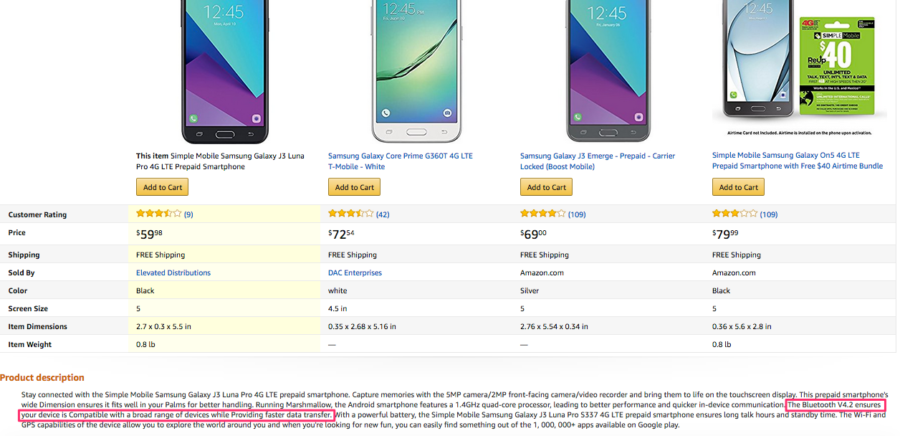
Your buyers’ eyes won’t glaze over your description if it highlights the benefits of each feature. Reading your listing, buyers can imagine how your item would improve their own lives and feel driven to purchase it.
Scannable Formatting
Amazon buyers aren’t going to read your entire listing — there are too many products on the marketplace for customers to read every page entirely. Instead, it’s more likely that a buyer will skim your listing to determine whether they want to make a purchase.
Clearly separated, the five bullet points at the top of every Amazon listing are easy for buyers’ eyes to scan.
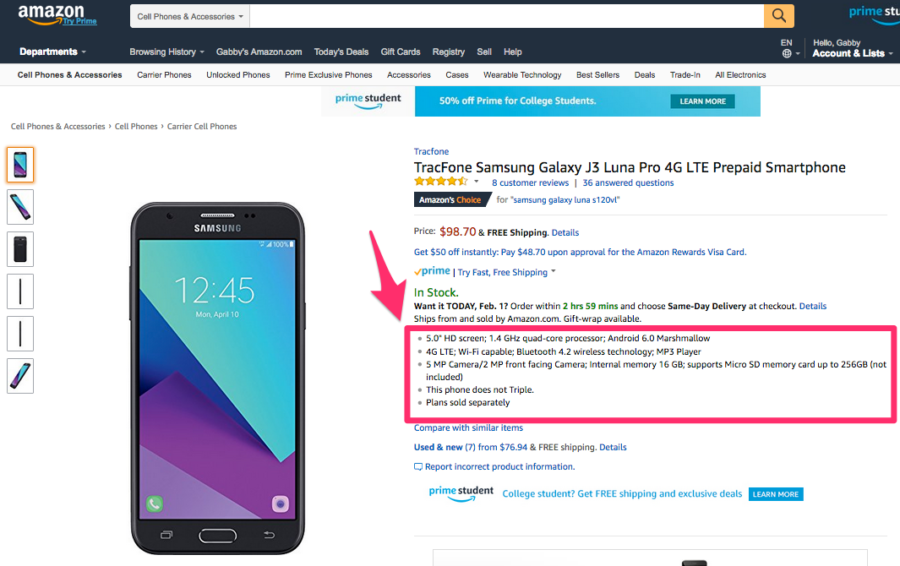
Knowing that customers are going to focus on these points, you want to strategically include product information in a way that highlights the best features of your item. Here are a few tips for highlighting your product information in a listing’s bullet points.
- Place your product’s best attribute in the first bullet point. A buyer may stop reading your bullets if the first point isn’t captivating. Grab their attention by highlighting your product’s best feature in the first point.
- Consider writing your key product features in all caps. Amazon’s description formatting is pretty restrictive — you can’t use tools like bolding to highlight your product features. A simple fix is to write your product’s most important features in all caps to draw in buyers’ attention.
- Keep your bullet points short and sweet. You risk losing buyers’ attention if you include too much information. Keep your bullets short with only the most essential product information. We recommend mostly using a bullet length of one line and at the most, two lines.
Buyers’ eyes are naturally drawn to a listing’s bullet points — take advantage of this scannable formatting by highlighting your product’s best features in short, easy-to-read bullet points.
Engaging Visuals
Our brains gravitate towards images—90% of the information transmitted to the brain is visual, and we process images 60,000 times faster than text. With this psychology, clear, high-quality product images can quickly convince Amazon buyers to make a purchase. Capture your customers’ attention with these product image tips:
- Use high-resolution photos. Amazon recommends that product photos be at least 1,000 pixels in either height or width.
- Include multiple photos. Since Amazon buyers can’t physically interact with your products, including multiple images is a great way to build their trust in your brand and feel confident in buying your item.
- Edit your photos to make your products pop. Tricks like increasing the exposure, reducing shadows, and adjusting the contrast can make your product colors stand out and catch buyers’ attention more easily.
Taking the time to carefully select and edit your product photos pays off in the long-run. With attractive images, your listing grabs buyers’ attention and builds their trust in the product so they feel comfortable and ready to make a purchase.
Drive Sales With a Carefully Crafted Listing
Creating a new Amazon listing is a moment of opportunity. Unlike the standardized aspects of selling on Amazon, a listing is a space where your brand can shine and customers can realize why they should care about your products. No other merchants are selling your item, so you get to choose the images and product information that you think will motivate buyers to make a purchase.
Knowing this value, you should take your time to thoughtfully create a product listing. By considering how buyers come across and perceive your listing, you can craft a product page that’s highly visible and attractive to customers.
Digital & Social Articles on Business 2 Community
(56)
